We are closing the pagepublished at 17:50 BST 17 May 2024
Thank you joining us.
Our live coverage of the cryptosporidiosis outbreak has ended.
A total of 46 cases of cryptosporidiosis have now been confirmed in the Brixham area by UKHSA
The boss of South West Water (SWW) says she is truly sorry for the outbreak of a diarrhoea-type illness in south Devon
Infections from the parasite cryptosporidium can be caused by drinking contaminated water or swallowing it in swimming pools or streams
On top of the confirmed cases more than 100 other people have reported similar symptoms
SWW says a damaged air valve on a pipe in a field containing cattle has been identified as a potential source of entry for parasites
About 16,000 homes and businesses have been served boil water notices
SWW CEO Susan Davy says the company will not stop working until the situation has been resolved
Thank you joining us.
Our live coverage of the cryptosporidiosis outbreak has ended.
What we know so far:
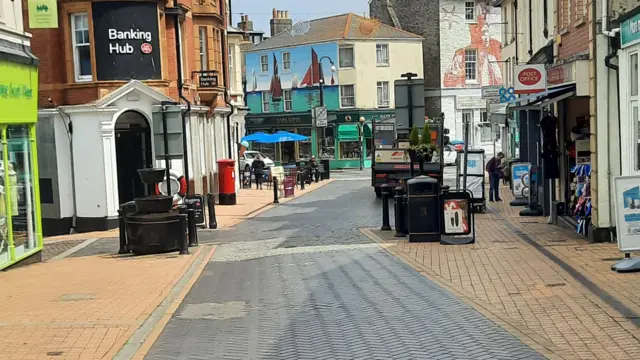 Image source, Sean Warren
Image source, Sean WarrenA resident says Brixham has been “noticeably quiet”
Barry Flack, who runs a stall selling miniature accessories by Brixham Harbour, says the area has been "noticeably quiet".
He says locals started reporting being unwell 12 days ago, adding: "I live in Brixham and people were saying that they were all getting ill at one part of the town, whole streets, apparently.
"And they contacted South West Water and they said there was no problem with the water."
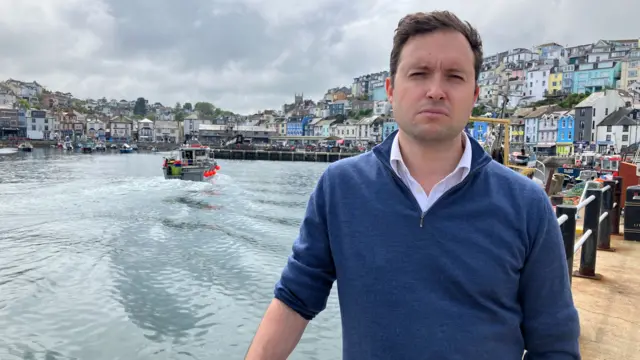
MP Anthony Mangnall said he was "deeply concerned" about SWW management
Anthony Mangnall, Conservative MP for Totnes and South Devon, has said "heads are going to have to roll" over the cryptosporidiosis outbreak.
He said although he was unable to "give the sentence before I give the verdict" it was important to find out what had happened for it to go wrong.
Mr Mangnall said: "From the handling thus far to the delays in communication with the community to the denial at the beginning makes me deeply concerned about the management at South West Water.
"That to me is pretty indicative that at some point heads are going to have to roll over this."
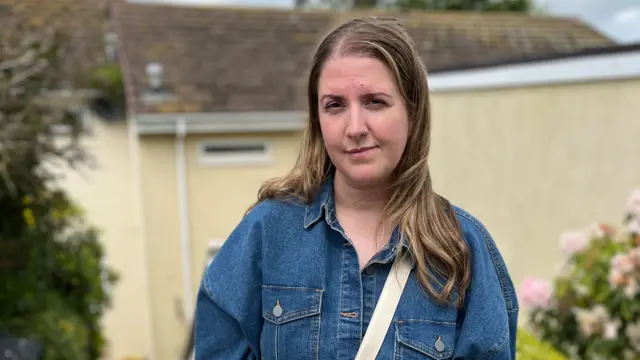
Kayley Lewis said members of her family were first hit by illness on 5 May
A woman whose son ended up in A&E with vomiting and diarrhoea says she is angry at South West Water's response to the parasite.
Kayley Lewis said her 13-year-old son was admitted to hospital after blood was found in his vomit.
The bug then spread to her other son, while she also experienced similar symptoms.
She said her family started becoming sick on 5 May - 10 days before the water firm advised residents in Brixham to start boiling their water after traces of cryptosporidium were found in part of its network.
Ms Lewis said the past fortnight had been "scary".
"It was really worrying because blood and sick for a child gives red alerts," she said.
"Every time he would take a sip of water it would come straight back up.
"He is going OK now but he is still getting headaches now and then."
Ms Lewis said she had lost about 6lb (3kg) since she first started showing symptoms.
"I was poorly for six days straight," she said.
"My other son was crying on the floor in pain - he is autistic so he didn't know what was going on.
"It's very, very painful.
"It's not just when you have a bug. It is constant."
Ms Lewis says SWW's response to the issue had been "disgusting".
"It's not good enough," she said.
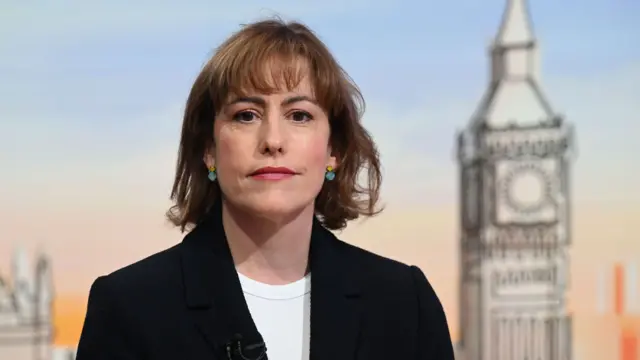
Victoria Atkins, the Health Secretary, says outbreaks relating to drinking water are rare
There will be "very very hard questions" for South West Water to answer from its investigation, Health Secretary Victoria Atkins says.
The Drinking Water Inspectorate says an investigation is under way - including into the actions of SWW.
Ms Atkins said "more answers" will be obtained for the public.
She said: "At the moment we probably need to give them space to conduct their investigation - the public will want to know how on earth a source happened, what was the chain of events that led to this?
"The message of reassurance is that this sort of outbreak really is rare for drinking water."
 Image source, PA
Image source, PAWater companies were privatised under the late prime minister Margaret Thatcher
The water and waste sector was privatised 34 years ago under Margaret Thatcher's Conservative government for £7.6bn.
Thatcher wrote off the industry's £5bn debt and gave it £1.5bn in public money for the industry's new era.
At the time, the UK was under pressure from Europe to improve its water purity and meeting European standards would cost billions of pounds worth of investment.
It was hoped this would come from the private sector.
Ofwat was established in 1989 as the industry's regulator, which protects consumer interests and monitor companies' water supply and sewage activities.
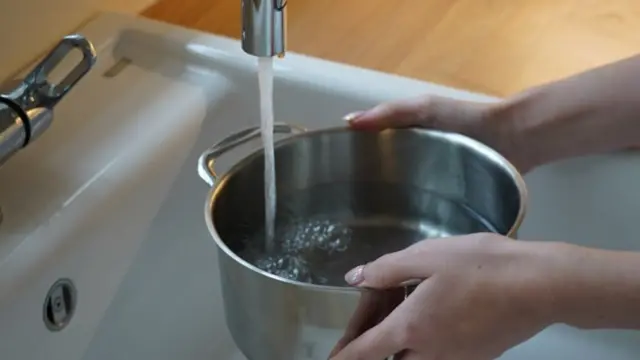
Dr Bayad Nozad, a UKHSA consultant in health protection, said it was aware of further reports of illness above their confirmed numbers.
So far 46 cases of cryptosporidiosis have been confirmed in the Brixham area.
He asked people not to contact medical services "unless you need urgent clinical care".
"If your symptoms last longer than seven days, or if you experience more severe symptoms such as blood in your poo, please contact your doctor who may recommend taking a sample for testing.
"Those with symptoms should stay off nursery, school and work for 48 hours since the last episode of illness and anyone with diarrhoea should not go swimming for 14 days after the last episode of illness."
People in the affected areas are still being advised to boil their water before they use it.
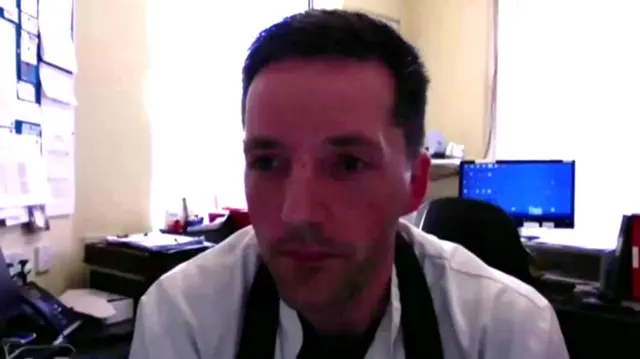
Mark Bradley, chef manager of the Royal Dart Yacht Club in Kingswear
A yacht club that has had staff go off sick and see a lot of bookings cancelled says the response from South West Water has been "incredibly bad".
Mark Bradley, chef manager of the Royal Dart Yacht Club in Kingswear, says: "We as a business didn't receive any information at all from them - I found out most of my information through Facebook.
"It literally was run in, give us a poster, and run out."
South West Water is in the spotlight today, but let's have a look at what other problems water companies have been dealing with.
Thames Water - which serves London and the Thames valley region - is the UK's largest water firm and has huge debts of about £15.4bn, which has led to speculation the government could take it over.
Its troubles deepened when its parent company, Kemble Water, defaulted on £400m of debt in April.
But money has not been the only issue facing water companies.
Water companies have recently come under criticism with their treatment of sewage.
Two days ago the BBC reported that United Utilities - which covers most of the north-west of England - failed to stop the pollution of Lake Windermere with raw sewage.
The firm said it took urgent steps to resolve the incident in Cumbria in February.
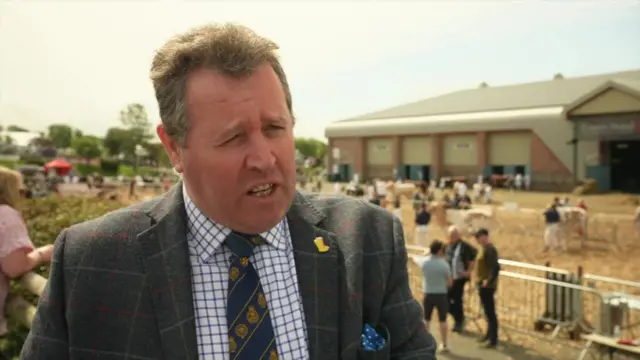
Farming Minister Mark Spencer
Farming Minister Mark Spencer has been speaking about the parasite outbreak during a visit to the Devon County Show.
He told the BBC: "I think the way in which South West Water has handled this has not been the best and there will be questions to answer."
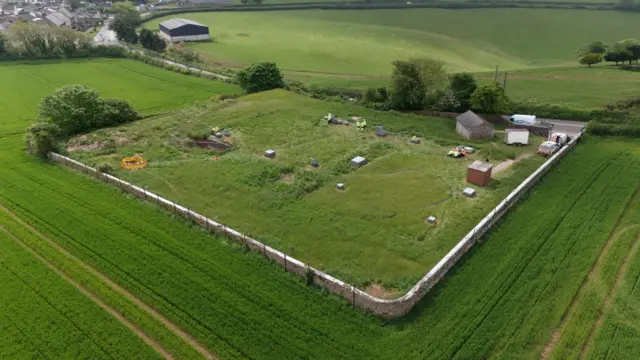 Image source, PA Media
Image source, PA MediaThe Hillhead reservoir is being drained
South West Water (SWW) says it is draining the Hillhead reservoir while it completes a testing programme.
SWW says the reservoir and the wider Alston area are being investigated after the cryptosporidiosis outbreak. About 40,000 residents get their water supply from the reservoir.
On its website, external, the water company says it will complete a thorough cleaning programme before refilling the reservoir.
The water will be tested over a period of days before restrictions are lifted, it says.
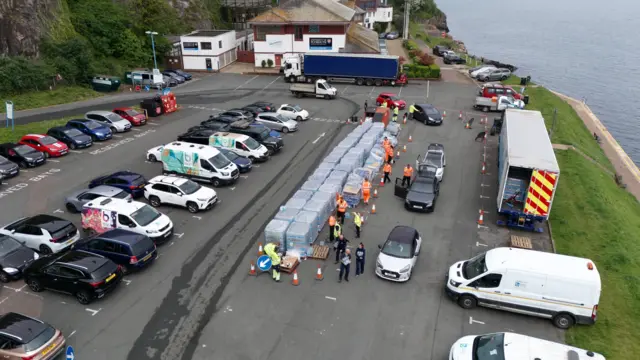 Image source, PA Media
Image source, PA MediaMore cases of cryptosporidiosis are expected
The UK Health Security Agency (UKHSA) says it is expecting more cases of cryptosporidiosis to emerge.
It says: "Other reported cases of diarrhoea and vomiting in residents and visitors to Brixham are also under investigation."
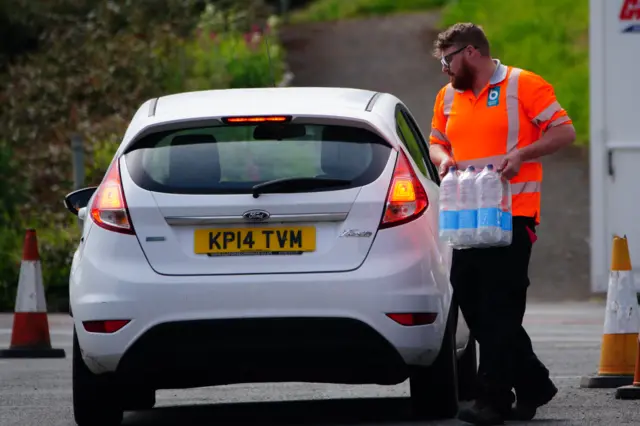 Image source, PA Media
Image source, PA MediaSouth West Water has been handing out bottled water
A total of 46 cases of cryptosporidiosis have been confirmed in south Devon by the UK Health and Security Agency (UKHSA).
More than 100 people have also reported symptoms, it says.
It follows contamination of drinking water in the Brixham area by the cryptosporidium bug, which causes sickness and diarrhoea.
About 16,000 households and businesses have been told not to use their tap water for drinking without boiling and cooling it first.
South West Water, which has traced the probable cause to a faulty valve, has also been handing out bottled drinking water to residents.
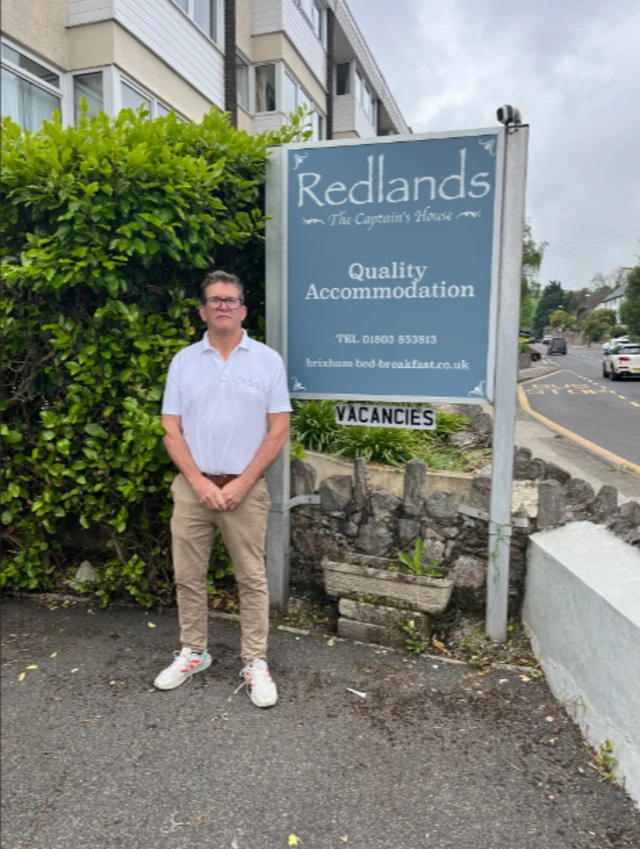
Stephen Cole-Mansfield said he was very concerned for the hospitality industry following an outbreak of a diarrhoea-type illness in south Devon
The owner of a guesthouse in Brixham says the cryptosporidiosis outbreak has "killed business overnight".
Stephen Cole-Mansfield from Redlands guesthouse said bookings were cancelled overnight, meaning they would lose about £1000 this weekend.
"We are empty," he said.
“It has been devastating. We are starting to ramp up for the season and we have no business.
“It has been badly portrayed, and it has affected the hospitality business across Brixham. It is in a small part of Brixham which doesn’t even affect us.”
He added: “I am very concerned."
Mr Cole-Mansfield said similar businesses in the area have had cancellations into June.
He said with the bank holiday coming up, they would usually be "very busy".
“It is very worrying. The beginning of the season has been diabolical because of the weather and now we have this hitting us, so we have had a particularly challenging season so far."
He explained the guesthouse has not received any information regarding compensation.
Mr Cole-Mansfield added South West Water should be “supporting” the industry.
“This is a direct result of their under-investment, lack of testing and the fact we have a severely antiquated sewage system in the area which needs updating. It needs sorting out," he said.
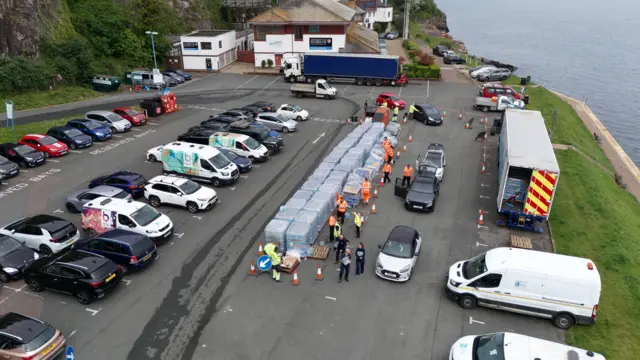 Image source, PA Media
Image source, PA MediaAbout 16,000 homes and businesses have been affected
The Drinking Water Inspectorate says an investigation is under way following the outbreak of a diarrhoea-type illness in south Devon.
The watchdog said it was "investigating the cause, extent, and actions of the company".
Water Minister Robbie Moore added: "We need South West Water to resolve this issue and ensure clean water returns to the Brixham area as soon as possible."
Meanwhile, Thames Water is in the spotlight again after a representative of the company's largest shareholder resigned from its board yesterday.
Speculation is rife about the future of the troubled water supplier, which is currently £15.4bn in debt. Last month it asked the regulator Ofwat if it could raise customer bills by up to 44% over the next five years.
Read more about the saga so far, and what might happen next, from BBC business editor Simon Jack and business reporter Charlotte Edwards here.
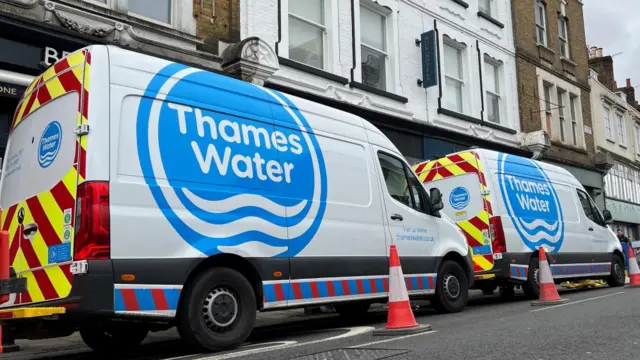 Image source, Reuters
Image source, Reuters Kirk England
Kirk England
Environment & Tourism Correspondent, BBC South West
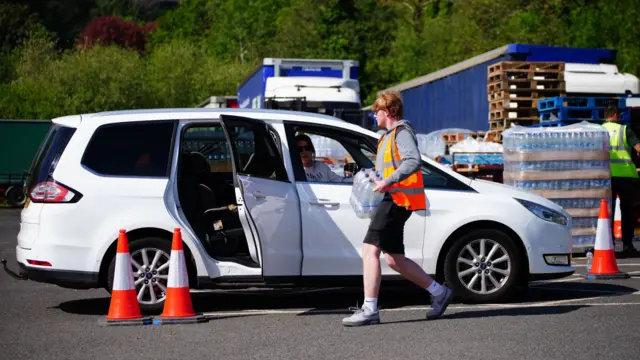 Image source, PA Media
Image source, PA MediaThe bottled water collection points are like a drive-thru
At this time of year, Broadsands beach in Torbay is a really popular spot with visitors and locals.
But those queuing to get into the car park aren’t here to take a dip in the sea. They’re here to pick up bottled water.
This is one of the collection points set up by South West Water following the parasite outbreak.
It’s like being at a drive-thru, with packs of bottles being efficiently placed in boots or on back seats.
Fork-lift trucks move pallets, constantly replenishing the stocks as people arrive.
Every person has a story - some have been ill themselves and most know someone who has been unwell.
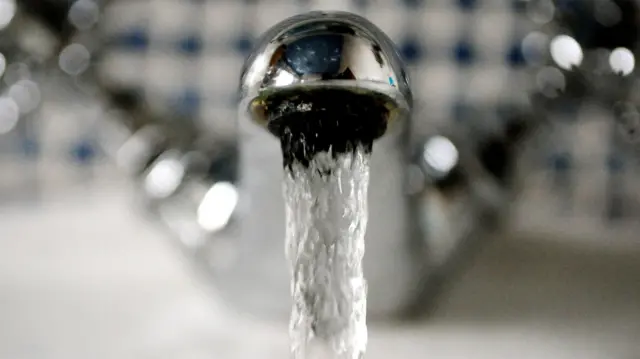 Image source, PA
Image source, PADevon isn't alone in having drinking water problems this year.
Hundreds of people on a housing development near Cambridge went days without drinkable tap water after concerns the water had been contaminated in January.
Bottled water was handed out and used for daily activities, from drinking to flushing toilets.
Resident Tulikka Varma Marlka said at the time the incident made her realise we take clean water "for granted".
Outside of the UK, the US introduced nationwide limits in April on several harmful chemicals found in its tap water.
Officials finalised a rule that required water companies to remove six versions of the PFAS chemicals, which are linked to health issues like cancer, from water systems.
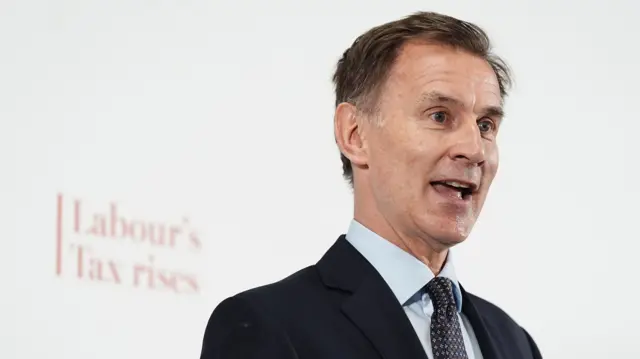 Image source, PA Media
Image source, PA MediaJeremy Hunt addressed reporters earlier this morning at an event in Westminster where he was asked about contaminated water in the South West and other issues relating to the water industry.
In a question and answer session, the chancellor was asked if his party had failed to ensure the country had a clean and safe water supply.
Hunt said the government was taking the "difficult decision" to require water companies to invest more in their network than ever before.
He insisted focusing on privatisation was a "red herring".
“The question is how we get the best investment in the water network going forward, and that is what we are seeing because of government policy," he said.